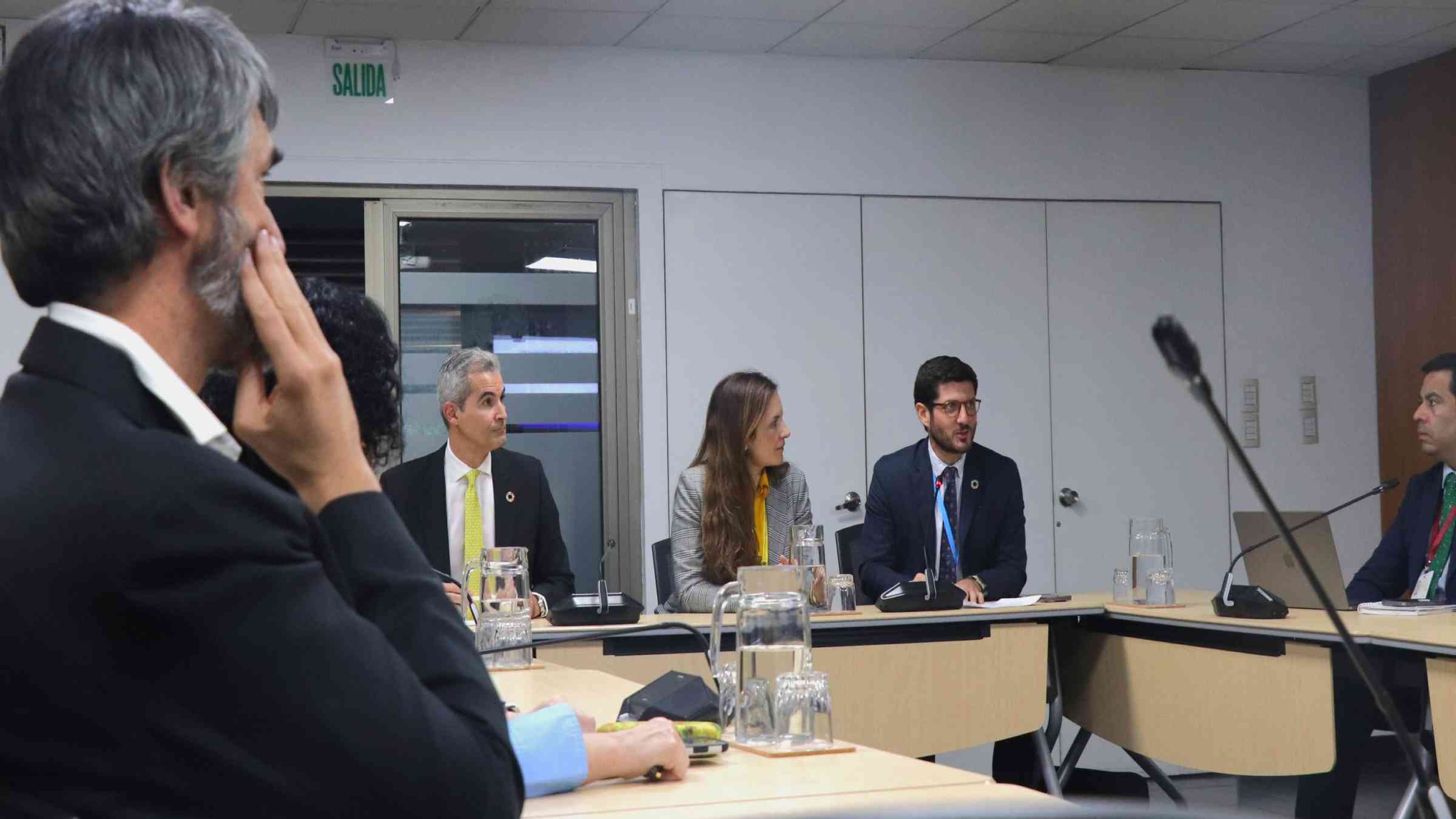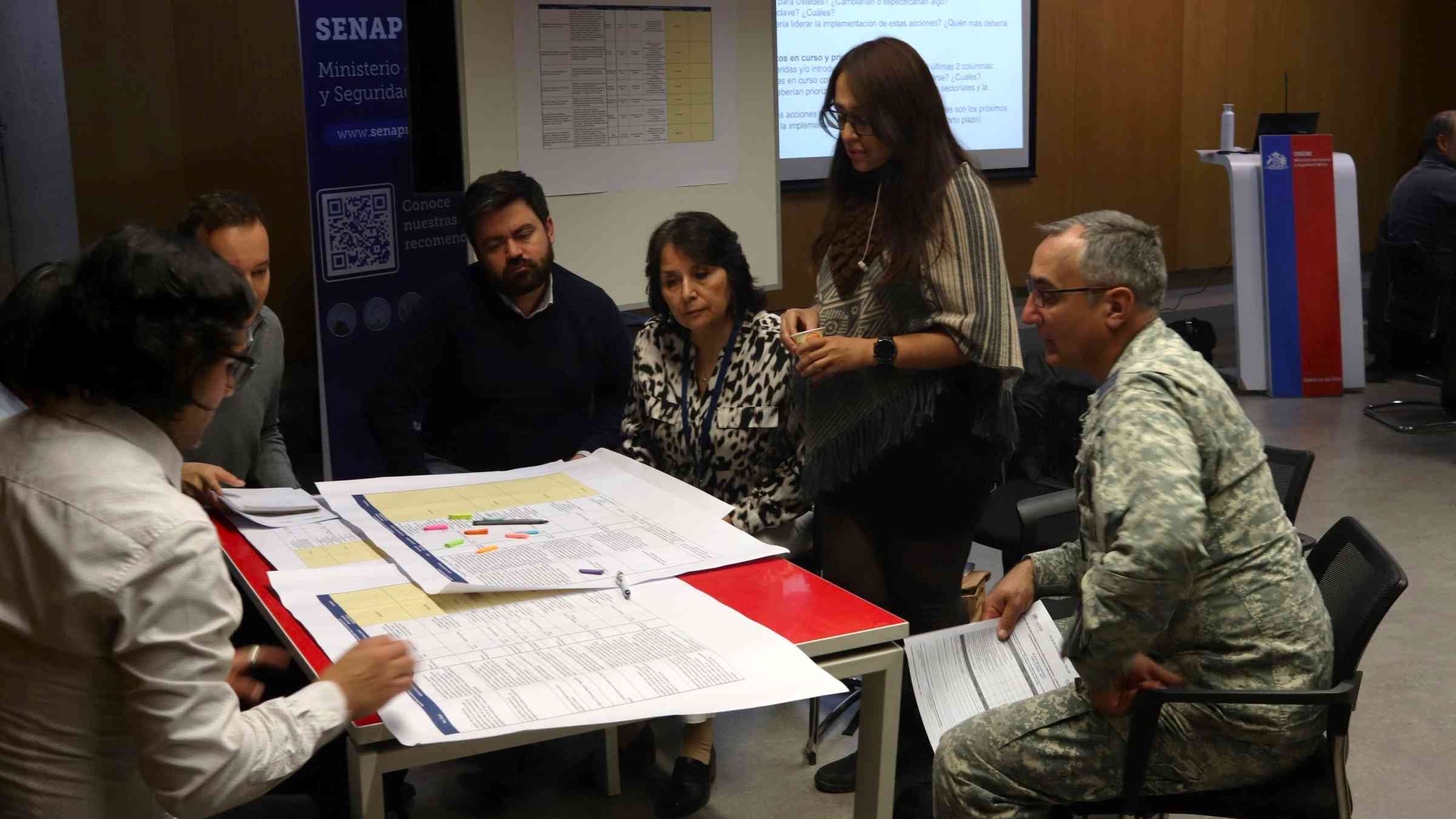Chile commits to strengthening its resilient infrastructure

In a significant step for Chile and its commitment to disaster risk reduction (DRR), representatives from various sectors discussed the implementation of an action plan based on the recommendations of the application of the Global Methodology for Infrastructure Resilience, developed by the United Nations Office for Disaster Risk Reduction (UNDRR) and the Coalition for Disaster Resilient Infrastructure (CDRI).

Under the leadership of the National Service for Disaster Prevention and Response (SENAPRED) of Chile, and with the support of the UN Office in Chile, a high-level roundtable was organised during the VII Forum of the Countries of Latin America and the Caribbean on Sustainable Development, with the participation of various entities such as the Ministries of Public Construction, Housing and Urban Development, Energy, Transport and Telecommunications, Health, Education, Social Development and Environment. The methodology outlines a series of critical initiatives to improve DRR in Chile and strengthen the country's resilience to various hazards. Government leaders, international development banks, international agencies and private sector representatives came together to explore courses of action based on the results presented.
The High Level Roundtable explored mechanisms to strengthen infrastructure governance at national, regional and local levels, and shared their views on the plans, identifying key areas that require immediate attention and coordination among disaster management stakeholders.
In addition, key capacity building initiatives related to risk reduction and resilient infrastructure management were discussed. Recognising the importance of education and training in building a culture of preparedness and response, participants discussed ways to strengthen the capacities needed to meet current and future challenges.
In preparation for this roundtable, SENAPRED held a final validation workshop for the project "Improving Infrastructure Resilience by Strengthening Governance in Chile", which played a key role in the development of an implementation plan aimed at overcoming the gaps identified in the national scenario.

The project first mapped key actors, identifying cross-cutting and sectoral institutions, as well as relevant institutions and actors. This was followed by a review of existing policies and regulations, both cross-sectoral and sectoral. The next step was to identify vulnerabilities through data collection and stress testing analysis. Finally, an implementation plan with short-, medium- and long-term recommendations was developed, involving the participation of all key sectors for infrastructure management, and validated by both the workshop and the High-Level Roundtable.
"Infrastructure resilience is the backbone of sustainable prosperity in our region. It is necessary to work on setting clear priorities to strengthen the governance of this resilience at different levels and in different sectors, in order to prepare our communities to face the challenges of the future," said Nahuel Arenas Garcia, chief of UNDRR - Regional Office for the Americas and the Caribbean. "This high-level roundtable not only reflects our commitment to disaster resilience, but also to the implementation of the 2030 Agenda, ensuring that our actions are aligned with sustainable development priorities for the well-being of communities now and in the future," he added.
Alicia Cebrián, Deputy National Director of SENAPRED, highlighted the importance of cross-sectoral discussions to implement policies and measures that strengthen resilient infrastructure. "This roundtable leads us to a deeper understanding of the interconnected risks faced by infrastructure, thus laying the groundwork for a common agreement on priority gaps and how to address them. We learned that there is no single solution, but a combination of measures that may vary depending on the context, from policy changes to capacity building," said Cebrián, who also emphasised the role of coordinating these efforts with infrastructure sustainability and climate change adaptation to ensure efficient investment of resources.
In Chile, estimated annual infrastructure losses are approximately US$5.4 billion due to disasters. This figure places Chile among the countries with the highest expected absolute annual losses in Latin America and the Caribbean, highlighting the urgent need to strengthen infrastructure and capacities to address these challenges. The pre-workshop and high-level roundtable underscore Chile's commitment to building a more resilient and sustainable future.